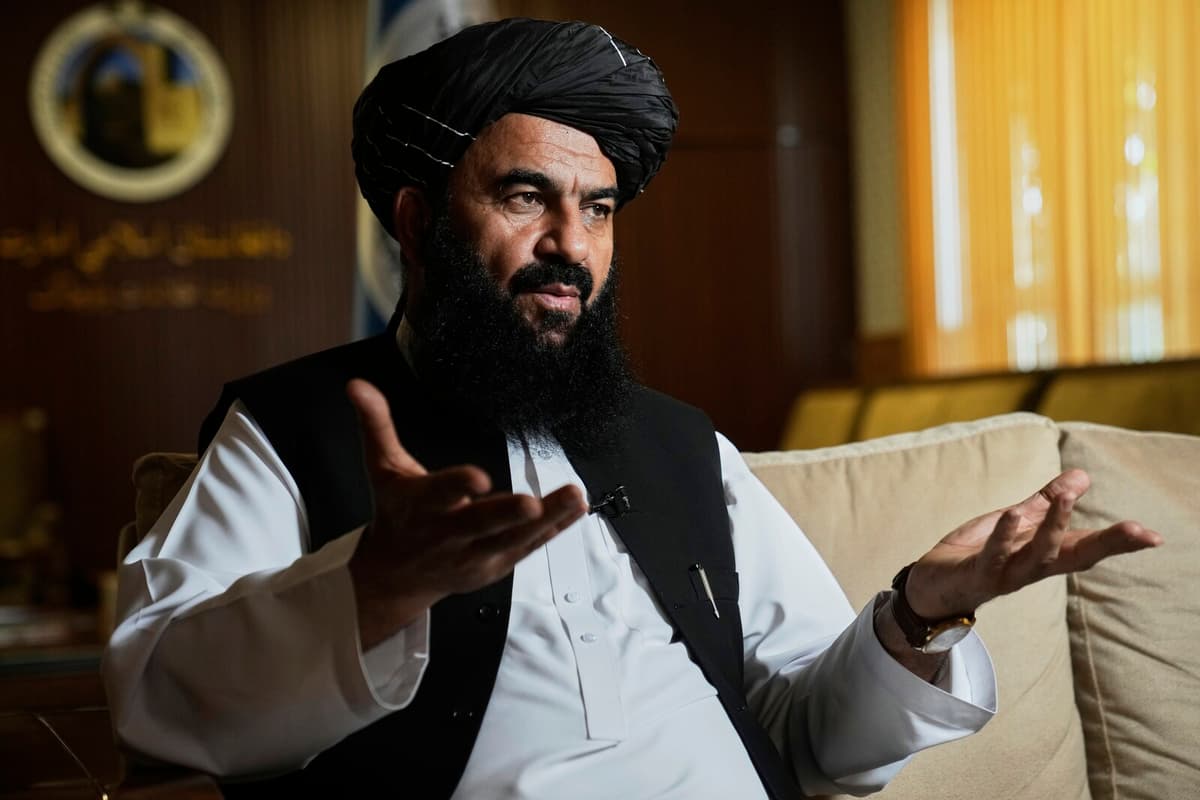Aircraft, motorcycles, campervans and even bicycles. Four years after the extremist Islamist Taliban seized power in violent forms, visitors are slowly starting to stream into Afghanistan.
The Taliban's vice minister of tourism, Qudratullah Jamal, is urging tourists to come and see the "true traditions and customs of the Afghan people".
The Afghan people are warm and welcoming and want to host tourists from other countries and interact with them, he tells the news agency AP.
Not least, the Taliban want to attract foreign currency. Since the takeover in 2021, which coincided with the US's chaotic withdrawal after decades of conflict, Afghanistan's economy has been in free fall. Large parts of the population live in severe poverty due to international sanctions based on the Taliban's treatment of women and girls. The movement rules with its own interpretation of Islamic Sharia law, which in practice means extreme oppression of women.
Now, tourism is bringing hope, according to Qudratullah Jamal.
Tourism has many benefits for a country. We have thought through the benefits and are aiming as a country to take full advantage of them.
Tourists shot dead
Most of the outside world, including Sweden, advises against all travel to Afghanistan. Despite this, the number of foreign guests has increased steadily in recent years: from just 700 in 2021 to 9,000 last year. And during the first three months of this year, nearly 3,000 visitors were registered, according to AP.
The regime in Kabul, which has not been formally recognized by any other country except Russia, is trying to facilitate things for potential visitors. Tourist visas are now easy to obtain and new flight routes from Dubai and Istanbul operate several times a week. The Taliban have even set up a special school for men - only men - who want to work in tourism.
We are already earning significant sums from this industry and hope it will grow even more in the future, says Jamal.
A few decades ago, in the 1960s and 70s, Afghanistan was a popular stop for backpackers traveling along the "hippie trail" between Europe and South Asia. But the revolution in Iran and the Soviet Union's invasion of Afghanistan put an abrupt end to the pleasure trips. Then followed over 40 years of stagnation on the tourist front, while Afghanistan was laid in ruins by the Soviet Union, the US and internal rivalries.
Now, the Taliban claim that the country is safe for tourists. According to Jamal, the entire country is characterized by "extensive security", according to AP. But the brutal Afghan branch of the terrorist group IS is still active and in May 2024, three Spanish tourists were shot dead in Bamiyan - the first deadly attack on tourists since the Taliban came to power again.
"Exotic experience"
Bamiyan is one of the main destinations for the burgeoning tourism. Here are the remains of two gigantic stone Buddha statues, carved out of a cliff face in the 6th century and blown up with dynamite by the Taliban in 2001. According to the then-regime in Kabul, the statues were "idols".
It's very ironic to now see Tiktok videos with a Taliban guide and a Taliban official selling tickets to the site of the Buddha demolition, said Farkhondeh Akbari, whose family fled the Taliban in the 1990s, to BBC in July last year.
It's the same people who destroyed the Buddhas.
Lin Yi-Pin's friends called him crazy when he said he was going to Afghanistan. It's too dangerous, they claimed. But Lin, a professor at Tufts University in Massachusetts, USA, had long dreamed of visiting the country.
I've never felt unsafe here. That's what has surprised me the most, he told The New York Times in the national park Band-e Amir in central Afghanistan in December.
I must say it's been an exotic experience.
Critics point to the ethically and morally questionable nature of touring a country where half the population is subjected to systematic discrimination. The Taliban have almost completely eradicated Afghan women from public life. They are not allowed to attend school after the age of 11, are not allowed to show their faces or raise their voices in public, and are not allowed to pray in front of others. They are also not allowed to visit parks, gardens or training facilities.
"Gender apartheid"
French-Peruvian Illary Gómez and her British partner James Liddiard discussed for a long time whether they should include Afghanistan in their trip from the UK to Japan. Some things didn't feel right.
In the end, the couple decided they wanted to make their own assessment. Once on the spot, they met beautiful landscapes and a warm, hospitable and welcoming people, says Gómez to AP.
When you travel, you put money in people's hands, not in the government's.
Foreign women are also much less restricted than Afghan women. They must wear a veil and covering clothing in public, but have access to more places than their Afghan counterparts and are rarely asked to cover their faces.
For Afghan Farkhondeh Akbari, now a researcher at Monash University in Australia, tourism leaves a bitter aftertaste. Tourists help the Taliban to wash their image, she says to BBC.
"We go and enjoy the landscape and get our 'views' and 'likes'". It hurts us very much.
We're talking about 50 percent of the population that has no rights. We're talking about a regime that has introduced gender apartheid.
Afghanistan in southern Central Asia has been marked by war and conflict for decades. Soviet invasion, militia rule, Taliban rule and American bombings have laid the economy and infrastructure in ruins. Millions of Afghans are on the run.
The country has no coast and borders Pakistan, Iran, Turkmenistan, Uzbekistan, Tajikistan and China. There are, in theory, open border crossings to all neighboring countries except China, according to travel websites.
The Islamic fundamentalist Taliban regime took power in 1996 and transformed the country into an extremely religious state ruled by strict Sharia law. The Taliban were driven out by the US in 2001, only to seize power again 20 years later in a lightning-fast offensive. This took place in conjunction with the US's chaotic and criticized withdrawal from the country.
Afghanistan has high mountains, deep valleys, national parks and thousand-year-old cultural heritage. Many ancient monuments, such as the famous giant Buddhas from the 6th century in the Bamiyan Valley, were destroyed during the Taliban's first stint in power.
Source: Landguiden/UI






